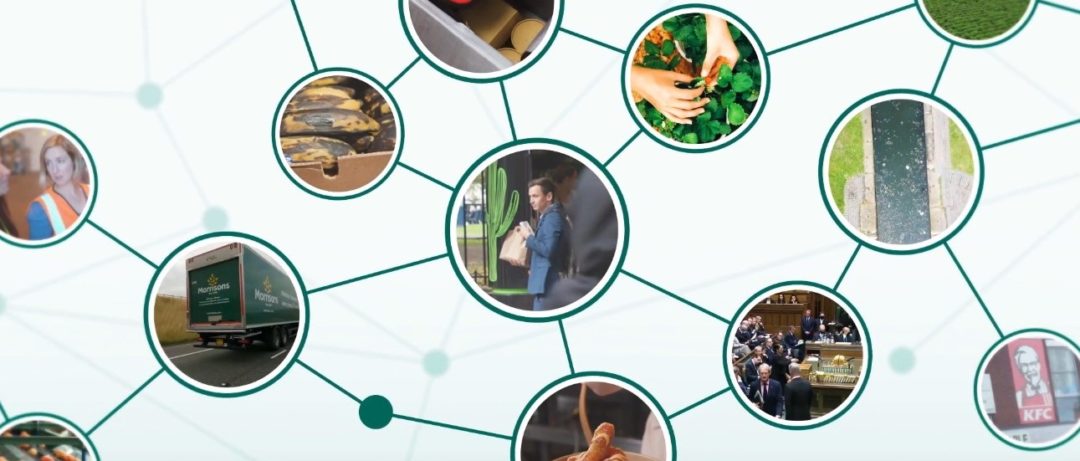In early December, members of the Mandala Consortium visited Birmingham to explore different aspects of the city’s food environment, systems and culture. In a packed 24 hours, researchers from the team visited a primary school, a hospital, the city markets, shops and restaurants, a fruit and vegetable wholesaler and a community growing site. We heard about how food is produced, processed, moved and consumed in the city. It’s not possible in this short space to cover everything we learned, but we wanted to share a few highlights.
The food system – what’s in and what’s out?
We were reminded at every point of our visit of how closely linked food and human and planetary health are to the economy, policy, infrastructure, status, family, community and culture. This presents challenges of where we draw the boundaries on what we call a ‘food system’ and therefore where we can begin and end our interventions.
And, as always when considering population health and sustainability, we need to think hard about the level at which we might intervene. How, for instance, do we balance the enthusiasm for family and local community-based projects with the knowledge that greater impacts could come from interventions at a larger scale? Diversity of approach is likely to be key, as is scalability.
This is why we plan to hold workshops involving the many different sectors in the food system: so that we can identify the most powerful levers that can operate at different scales to transform the food system.
Local to global and back again
Many conversations we had turned on the question of where and how food choices are being made. While we heard voices pointing to the dominance of consumer perception and desire, we also saw the power of institutional purchasing and the retail sector, not to mention the strong influence of what wholesalers can source and supply. These elements are of course influenced in different ways by global systems and trends, which are hard for even ambitious interventions to begin to tackle.
Contrary to popular opinion, ‘local’ and ‘sustainable’ are not interchangeable – particularly in such a diverse and international city as Birmingham. Having said that, it became clear just how much land there is available for growing food in the city: in schools, community gardens, allotments and other unused urban spaces. And even if the volume of food produced will never feed a city on its own, the impacts on perception and behaviour from such exposure are important, if less easy to measure.
The stakes are high, the time is now
We saw time and again the impact of people’s lives on what they eat – and vice versa. A quarter of a million people live in persistent deprivation in East Birmingham; the Birmingham Women’s and Children Hospital sees around 10% of all children in the city over a year, many of whom are affected by diet-related illness. But these stark facts are just the tip of the iceberg: the wider impacts of the food we eat are often hidden by gaps in knowledge and data, and the ability to rise to the resulting challenges limited by the services struggling to meet growing needs.
But the possibilities for change are significant, including a large urban development across the East Birmingham Growth Corridor where transformational, not incremental, change is the ambition. And everywhere we went we found a huge appetite to create a food system that could work better for people and planet.
While we ended the visit with our heads full of questions and some sense of trepidation about the scale of the changes needed, we were left in no doubt about the plethora of ideas or the energy and passion to try to make them a reality.
So we’d like to extend our thanks to all those who hosted us, showed us around and shared their perspectives. There is a world of difference from knowing some of these things abstractly, and seeing them first-hand and connecting with those grappling with them every day.
Get involved
If you have a stake in the food system in Birmingham – whether you’re in the public, private or third sector – we’d love to hear from you. We are looking for representatives to join our research: to participate in interviews, focus groups, workshops and future visits to businesses, services and projects around the city.
You can watch a short film about our work and contact us here.
We’re really looking forward to working more with you all.
Specific thanks to:

